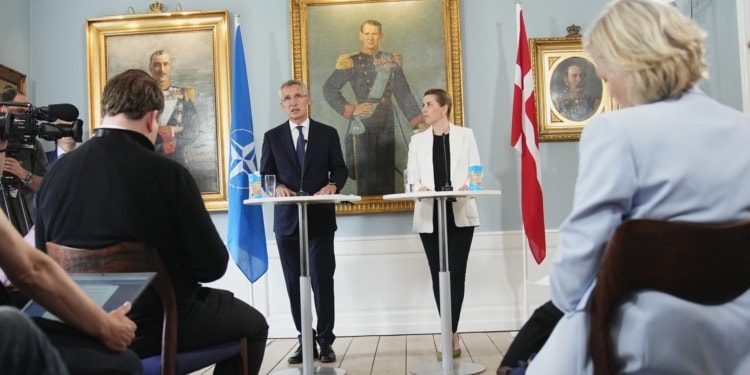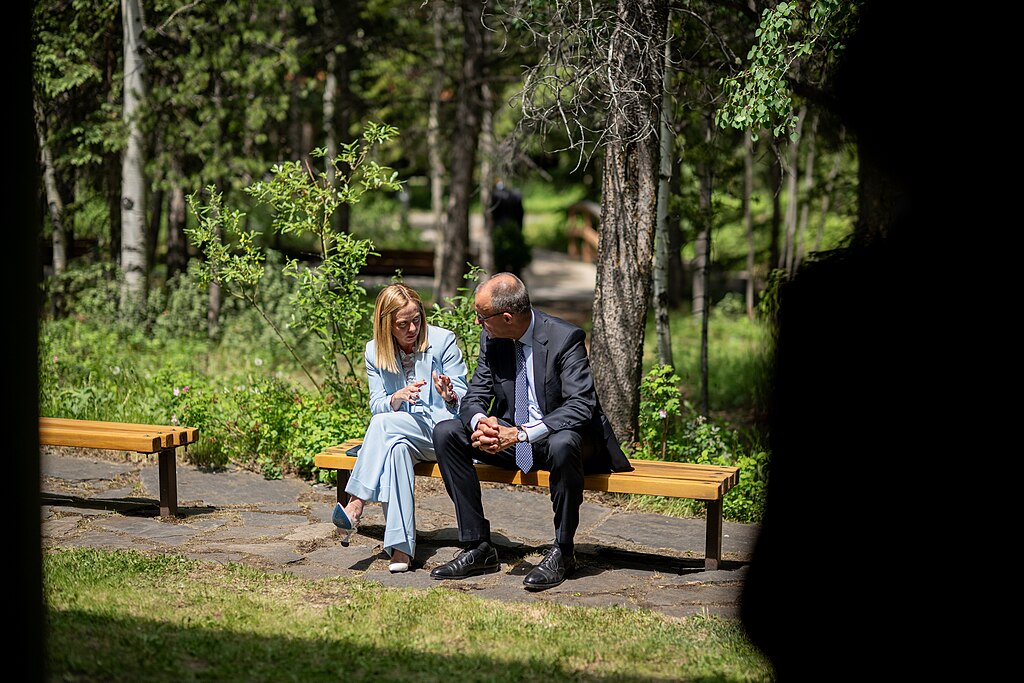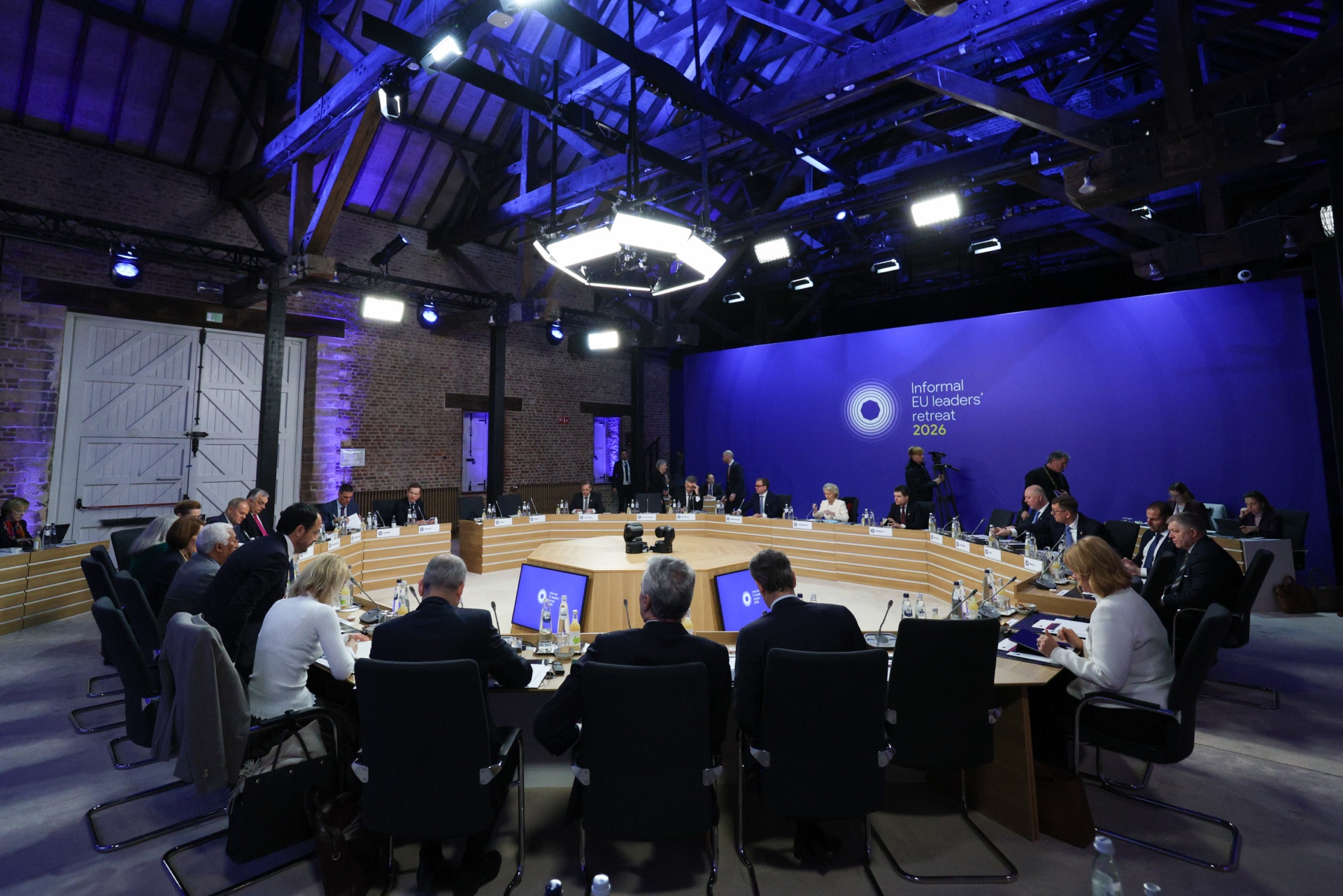Denmark will join the European Union’s defence policy following a referendum on Wednesday, signalling the latest shift among Nordic countries to deepen defence ties with Western allies in response to Russia’s invasion of Ukraine.
In the largest ever pro-EU vote in the Eurosceptic Scandinavian country, 67% of Danes voted in favour of ending the 30-year opt-out in the referendum.
“Tonight, Denmark has sent a very important signal — to our allies in Europe, and to Putin. We show that when Putin invades a free country and threatens the stability of Europe, we others move closer together,” Prime Minister Mette Frederiksen said.
Analysts said that the Danish referendum along with Finnish and Swedish decisions to seek NATO membership should strengthen the Nordic region and its influence in Europe.
“This is a powerful signal that Denmark stands united with Ukraine and our allies in the fight for freedom and democracy,” said Anders Fogh Rasmussen, the former Danish prime minister and NATO secretary-general.
Denmark, a NATO member, has stayed on the sidelines of EU efforts to build a common security and defence policy in parallel with the trans-Atlantic alliance. Its defence reservation came about after Denmark rejected the 1992 Maastricht Treaty on closer EU integration. The referendum marks the first time a government has succeeded in abolishing one of several exemptions secured in a 1993 referendum on the Maastricht Treaty.
Further EU integration
The move is a break from long standing Danish scepticism over further European integration. Denmark has held referendums in the past on scrapping its other two opt-outs — the euro in 2000, and justice and home affairs in 2015 — but in both of the cases, Danes voted no.
The end of the opt-out, which has been in place for 30 years, means that Denmark will be able to take part in joint EU military operations and cooperate on the development and acquisition of military capabilities within the EU.
For the first time since the 1950s, Copenhagen is increasing its military budget and allowing foreign troops to train and exercise on its land.
In addition, the end of the opt-out opens Denmark’s doors to other European security agencies, which could help the country tackle cyber security threats together with its European allies. Due to increased pro-Russian cyber activity against NATO countries in recent weeks, the Denmark’s Centre for Cyber Security (CFCS) has upped the cyber security threat level brought about by the ongoing War in Ukraine.
EU leaders, including president of the European Council Charles Michel, Commission President von der Leyen and foreign affairs chief Josep Borrell, among others, congratulated Denmark — a sign that the highest levels of the EU view the Danish result as a vote of confidence in the bloc’s defence policy.
I welcome the strong message of commitment to our common security sent by the Danish people today.
Denmark’s expertise on defence is much valued.
I am convinced that both Denmark and the EU will benefit from this decision.
We are #StrongerTogether— Ursula von der Leyen (@vonderleyen) June 1, 2022
“The people of Denmark have made a historic choice. The world has changed since Russia invaded Ukraine. This decision will benefit Europe and make both the EU and the Danish people safer and stronger,” said EU Council chief Charles Michel.
Overall, the outcome of the referendum is viewed positively in Brussels and in NATO, proving yet again that Russia’s invasion of Ukraine has brought European countries closer together.
Editor’s Note: The opinions expressed here by Impakter.com columnists are their own, not those of Impakter.com — In the Featured Photo: NATO Secretary General Jens Stoltenberg (L) and Danish Prime Minister Mette Frederiksen (R) during a press meeting. Featured Photo Credit: EPA-EFE/Martin Sylvest, via EurActiv.













